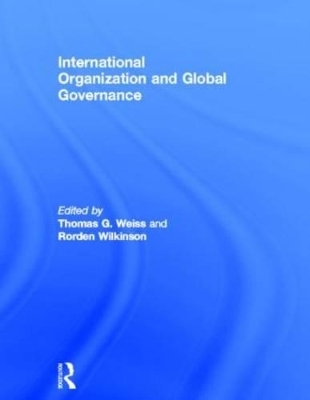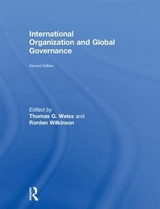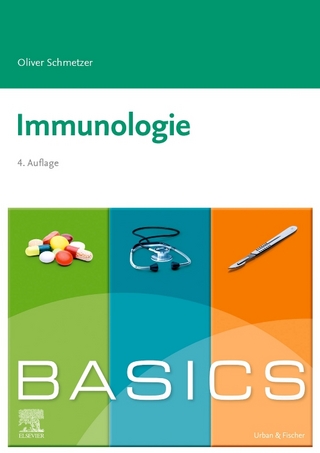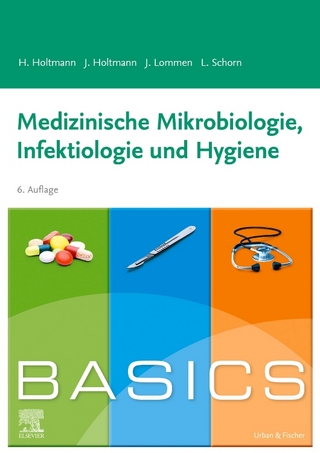
International Organization and Global Governance
Routledge (Verlag)
978-0-415-62743-6 (ISBN)
- Titel erscheint in neuer Auflage
- Artikel merken
in-depth and accessible coverage of the history and theories of international organization and global governance;
discussions of the full range of state, intergovernmental, and nonstate actors; and
examinations of key issues in all aspects of contemporary global governance.
The book’s 50 chapters are arranged into 7 parts and woven together by a comprehensive introduction to the field, separate section introductions designed to guide students and faculty, and helpful pointers to further reading. International Organization and Global Governance is a self-contained resource enabling readers to better comprehend the role of myriad actors in the governance of global life as well as to assemble the many pieces of the contemporary global governance puzzle.
Thomas G. Weiss is Presidential Professor of Political Science at The Graduate Center and Director of the Ralph Bunche Institute for International Studies, The City University of New York, Research Professor at SOAS, University of London, and past-President of the ISA (2009-10). Rorden Wilkinson is Professor of International Political Economy in the School of Social Sciences and Research Director in the Brooks World Poverty Institute, both at the University of Manchester.
Part I: Introduction From International Organization to Global Governance Thomas G. Weiss (The CUNY Graduate Center) and Rorden Wilkinson (University of Manchester) Part II: Contextualizing International Organization and Global Governance Section Introduction 1. The Emergence of Global Governance Craig Murphy (Wellesley College and University of Massachusetts, Boston) 2. The Evolution of International Law Charlotte Ku (University of Illinois College of Law) 3. International Organizations and the Diffusion of Power Michael Barnett (George Washington University) and Raymond Duvall (University of Minnesota) 5. The Diffusion of Authority David Held (Durham University) 6. Who Governs the Globe? Susan K. Sell (George Washington University) Part III: Theories of International Organization and Global Governance Section Introduction 7. Realism Jason Charrette (University of Connecticut) and Jennifer Sterling-Folker (University of Connecticut) 8. Classical Liberal Internationalism Christer Jönsson (Lund University) 9. Neoliberal Institutionalism David P. Forsythe (University of Nebraska, Lincoln) 10. Rational Choice and Principal-Agent Theory Duncan Snidal (University of Oxford) and Henning Tamm (University of Oxford) 11. Constructivism Rodney Bruce Hall (University of Oxford) 12. Critical Theory Robert W. Cox (York University) 13. Classical Marxism Paul Cammack (City University of Hong Kong) 14. Feminism Susanne Zwingel (State University of New York, Potsdam), Elisabeth Prügl (Graduate Institute of International and Development Studies, Geneva) and Gülay Caglar (Humboldt University of Berlin) 15. Post-Hegemonic Multilateralism Amitav Acharya (American University) Part IV: States and International Institutions in Global Governance Section Introduction 16. The UN System Leon Gordenker (Princeton University) 18. The UN General Assembly M. J. Peterson (University of Massachusetts, Amherst) 19. Regional Governance Monica Herz (Pontifícia Universidade Católica, Rio de Janiero) 20. The European Union Ben Rosamond (University of Copenhagen) 21. The BRICs in the New Global Economic Geography Andrew F. Cooper (University of Waterloo) and Ramesh Thakur (Australian National University) 22. The Global South Ian Taylor (University of St. Andrews) 23. US Hegemony W. Andy Knight (University of Alberta and University of the West Indies) Part V: Non-State Actors in Global Governance Section Introduction 24. UN-Business Partnerships Catia Gregoratti (Lund University) 25 Civil Society and NGOs Jan Aart Scholte (University of Warwick) 26. Labor Steve Hughes (Newcastle University) and Nigel Haworth (University of Auckland) 27. Credit Rating Agencies Timothy Sinclair (University of Warwick) 28. Think Tanks and Global Policy Networks James McGann (University of Pennsylvania) 29. Global Philanthropy Michael Moran (Swinburne University of Technology) 30. Private Military and Security Companies Peter J. Hoffman (The New School) 31. Transnational Criminal Networks Frank Madsen (University of Cambridge)Part VI: Securing the World, Governing Humanity Section Introduction 31. UN Security Council and Peace Operations Paul D. Williams (George Washington University) and Alex J. Bellamy (Griffith University) 32. Regional Organizations and Global Security Governance S. Neil MacFarlane (University of Oxford) 33.Weapons of Mass Destruction Waheguru Pal Singh Sidhu (New York University) 34. From "Global War" to Global Governance: Counterterrorism Cooperation in World Politics Peter Romaniuk (John Jay College of Criminal Justice, CUNY) 35. Human Rights in Global Governance Julie Mertus (American University) 36. The Pursuit of International Justice Richard J. Goldstone (University of Virginia Law School) 37. Humanitarian Intervention and R2P Simon Chesterman (National University of Singapore) 38. Crisis and Humanitarian Containment Fabrice Weissman (Médecins sans Frontières) 39. Post-conflict Peacebuilding Rob Jenkins (Hunter College, CUNY) 40. Human Security as a Global Public Good Fen Hampson (Centre or International Governance Innovation and Carleton University) and Mark Raymond (Centre for International Governance Innovation) Part VII: Governing the Economic and Social World Section Introduction 41. Global Financial Governance Bessma Momani (University of Waterloo) Global Trade Governance Bernard Hoekman (European University Institute) 42. Global Development Governance Katherine Marshall (Georgetown University) 43. Global Environmental Governance Elizabeth DeSombre (Wellesley College) 44. Regional Development Banks Jonathan R. Strand (University of Nevada, Las Vegas) 45. Climate Change Matthew J. Hoffmann (University of Toronto) 46. Sustainable Development 47. Roger A. Coate (Georgia College and State University) 48. Poverty Reduction David Hulme (University of Manchester) and Oliver Turner (University of Manchester) 49. Food and Hunger Jennifer Clapp (University of Waterloo) 50. Global Health Sophie Harman (Queen Mary, University of London) 51. Refugees and Migration Khalid Koser (Geneva Centre for Security Policy)
| Erscheint lt. Verlag | 10.10.2013 |
|---|---|
| Zusatzinfo | 10 Line drawings, color; 11 Tables, black and white; 10 Illustrations, color |
| Verlagsort | London |
| Sprache | englisch |
| Maße | 189 x 246 mm |
| Gewicht | 1770 g |
| Themenwelt | Studium ► Querschnittsbereiche ► Infektiologie / Immunologie |
| Sozialwissenschaften ► Politik / Verwaltung ► Europäische / Internationale Politik | |
| ISBN-10 | 0-415-62743-5 / 0415627435 |
| ISBN-13 | 978-0-415-62743-6 / 9780415627436 |
| Zustand | Neuware |
| Haben Sie eine Frage zum Produkt? |
aus dem Bereich



